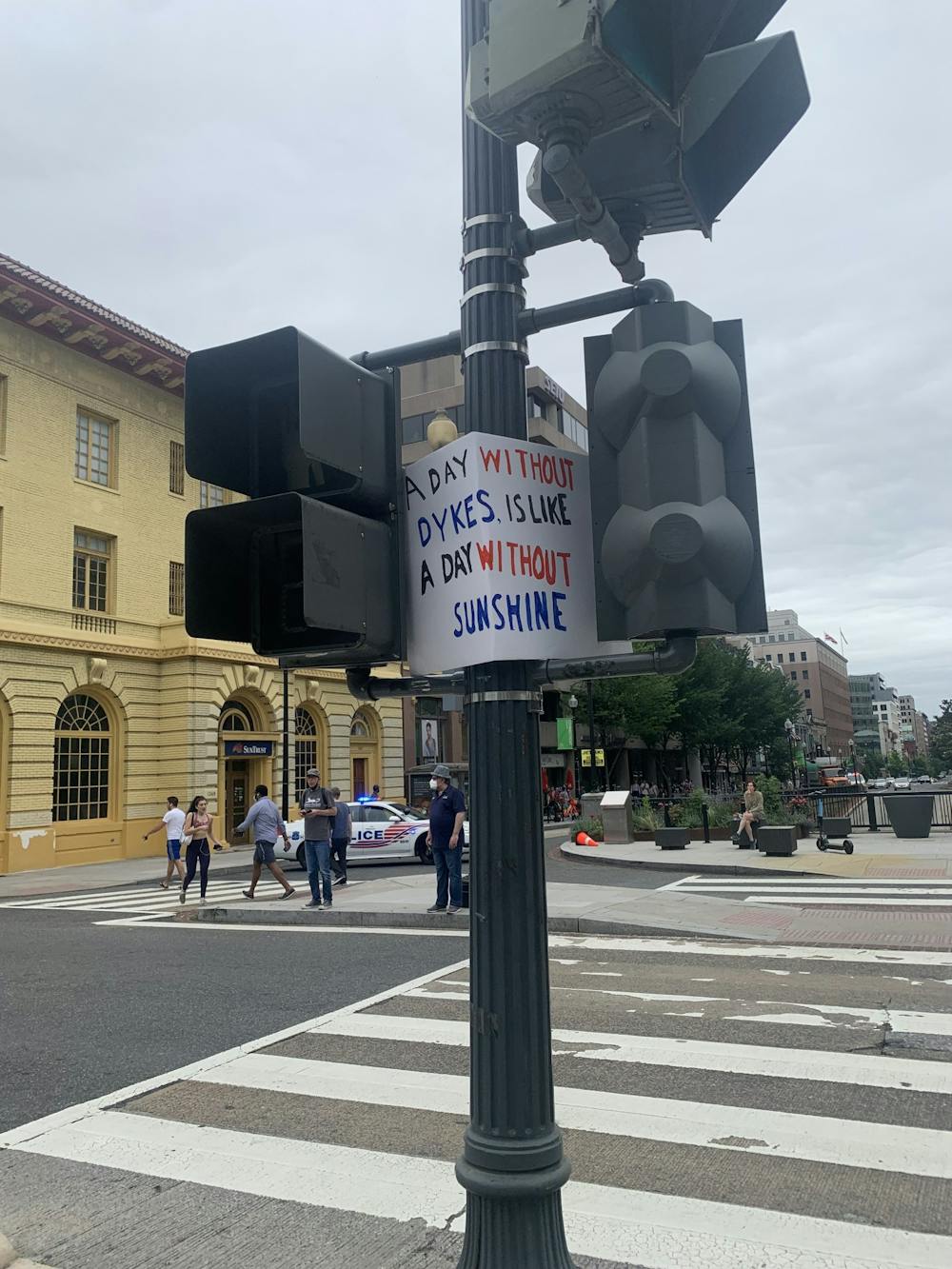I built up the moment in my head for so long. With almost every person I’ve ever come out to, I have labored over the thought of having to actually go through with it.
I’ll never forget the very first time I came out to someone. It was to my best friend from home. We were sitting on the couch in my basement — my whole family was out at an end-of-season celebration for my little brother’s robotics team — and I said to her, “I don’t think I’m straight.” She gave me a hug. That was June 14, 2019, the very end of my junior year of high school. It’s been almost three years, and I’ll never forget that day.
I had no idea what kind of journey was in store for me. At the time, I identified as bisexual, and now I’m a lesbian. But before I could even find the words or the strength to say that out loud, I knew I wasn’t straight. I knew that something about my experience wasn’t like what the people around me were feeling.
It took a long time to put a word to those feelings. The COVID-19 pandemic gave me a lot of time alone with my thoughts for self-reflection, and starting college gave me a brand new chance to start over with whatever labels — or lack thereof — that I wanted. It let me build an identity where I was openly and visibly gay, all the time, and I stopped having to come out to people.
Maybe not everyone I pass on the way to class knows that I’m a lesbian, but looking at me, it’s pretty easy to figure out that I’m queer.
That was liberating. I didn’t have to work up the courage to tell everyone I was getting to know that I had some big secret to tell them — that I was gay. I could make jokes about my sexuality, especially with my other queer friends. We bonded over shared experiences, both good and bad, and it was never awkward to bring it up in conversation. I just existed, as a lesbian.
I have a girlfriend now. I never thought I would get to say that. In concept, sure, I thought someday I would find someone who makes me happy, but it always felt out of reach in reality. The first few times I went on dates with girls, early on in my Princeton experience, I would have ridiculous bouts of incapacitating anxiety for days before, and I would struggle to even verbalize what I was feeling. It was all so new.
It felt just like staring at myself in the mirror of my childhood bedroom, pleading with myself to just be able to form the words: “I am gay.”
But as I became more comfortable in my own skin, settling into this label that I had chosen for myself, I began to feel like I had found a home in the word “lesbian.”
That’s not to say it’s all roses and sunshine. On Valentine’s Day this past year, I took my girlfriend out to dinner on Nassau Street. It was a moment that brought me so much joy — skipping multiple meetings to take my girlfriend out for a moment that could just be ours. But I went home that night and scrolled through Instagram story after Instagram story of friends from Princeton and from home with their significant others, largely those in heterosexual relationships, and I cried, wishing that I could be so open about this person who I care so much about. But at the time, my parents didn’t know I was gay, and I wasn’t ready to tell them quite yet, so that wasn’t an option.
Even still, I think about how much better it is here, where I am openly and unapologetically queer. I brought my girlfriend to the sophomore “redemption prom,” something I never would have dreamed of in high school. We hold hands as we walk around campus, and we make fun of the few times we’ve been mistaken for friends or roommates by some oblivious acquaintance.
The concept of “coming out” is certainly not flawless, even beyond the obvious flaw that only queer people have to do it. And it’s liberating to be in a space where I don’t have to “come out” to everyone I’m talking to — I can just mention my girlfriend to my coworker at my campus job or crack a joke about being gay and no one bats an eye.

But I’ll never forget the first times I was able to say those words to someone else, or even to myself. After months and years of trying to reach a point of self-acceptance, even though I certainly hadn’t reached that self-acceptance yet, I was able to speak it into existence. I’m a lesbian, and there’s power in those words.
Katherine Dailey is a Co-Head News Editor who often covers breaking news, politics, and University affairs. She can be reached at kdailey@princeton.edu or on Twitter at @kmdailey7.
Self essays at The Prospect give our writers and guest contributors the opportunity to share their perspectives. This essay reflects the views and lived experiences of the author. If you would like to submit a Self essay, contact us at prospect@dailyprincetonian.com.








